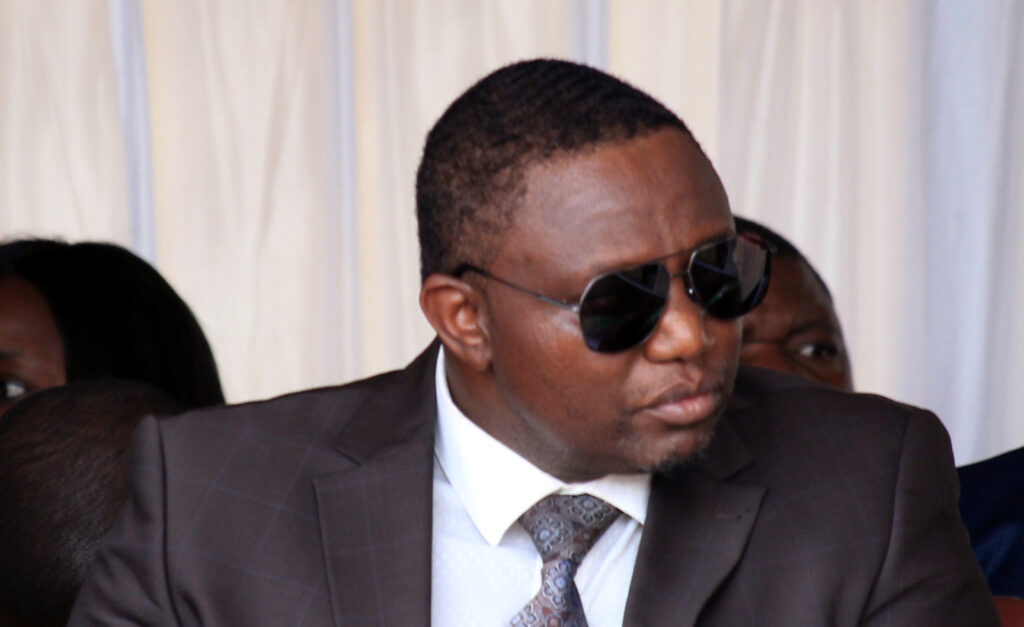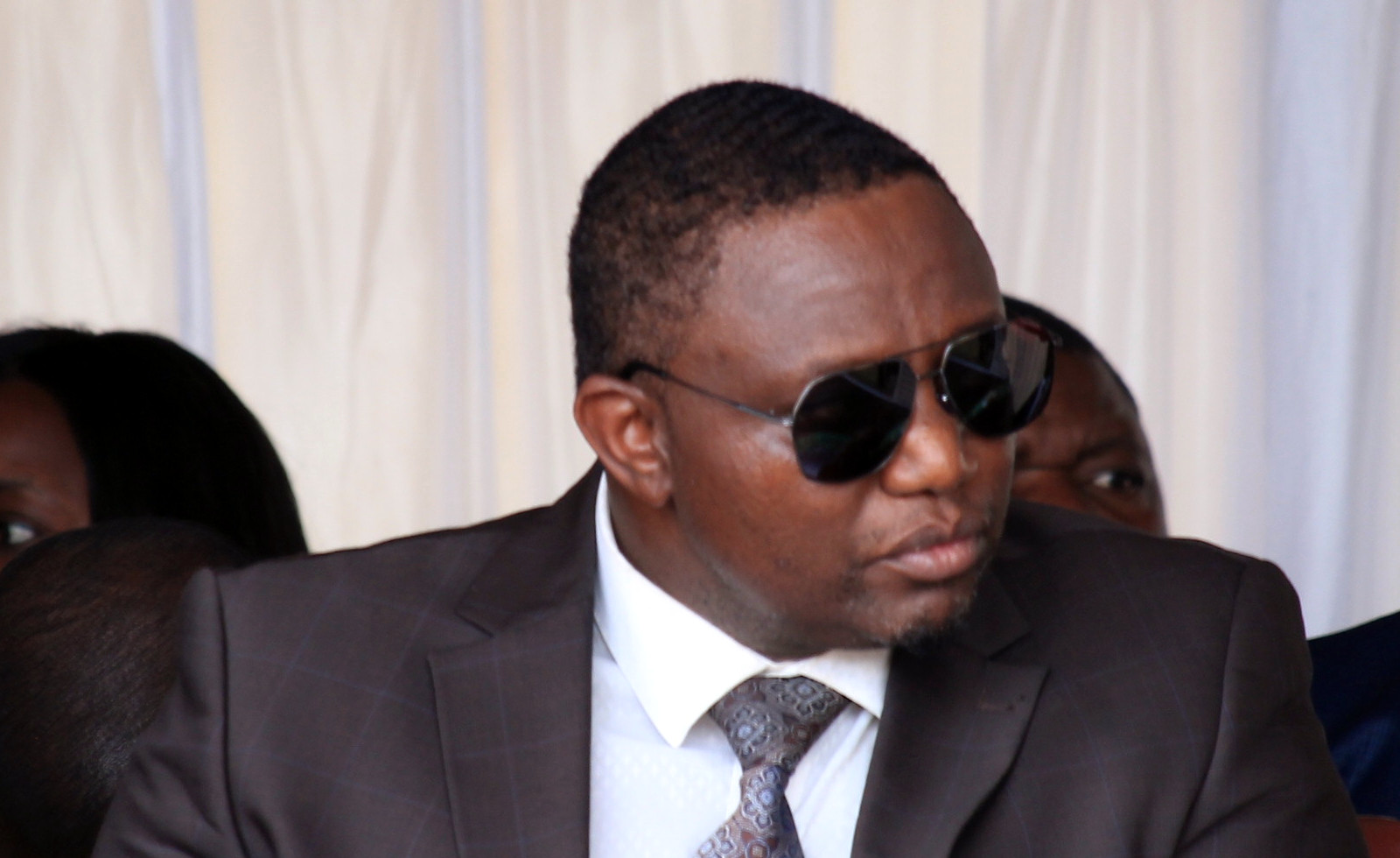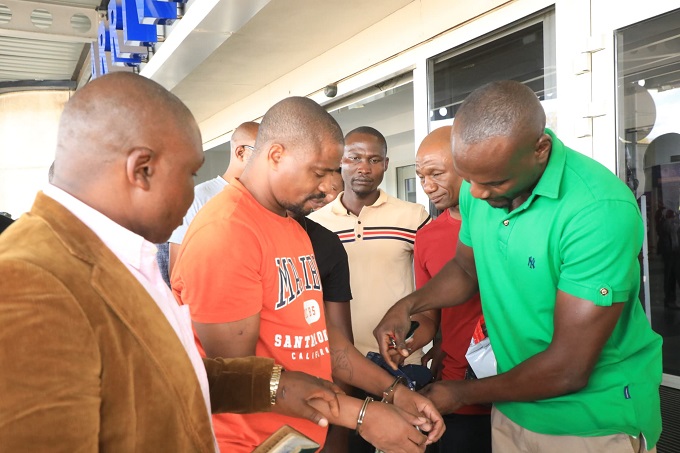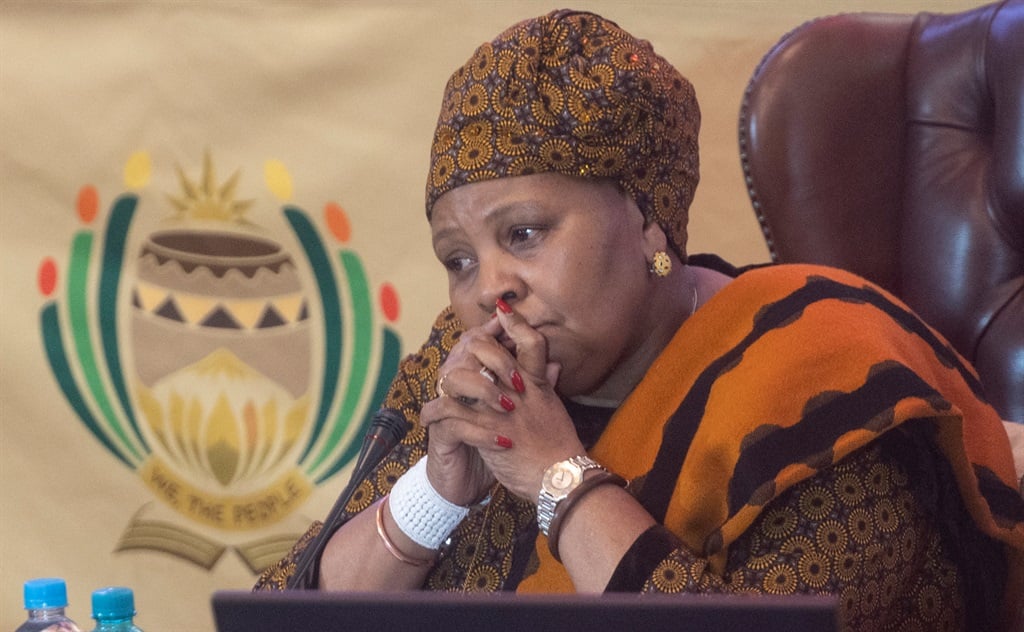
IN A move which shows the government’s growing concern with the rising abuse of social media in the country, authorities will treat all such cases as a threat to national security.
Giving a lecture at the National Defence University in Harare yesterday, Home Affairs minister Kazembe Kazembe also complained that legislators were “taking too long to enact” the Cyber Security and Cyber Crime Bill to deal with the scourge.
This comes after Vice President Constantino Chiwenga warned earlier this year that authorities would soon descend heavily on people who abused social media, to protect citizens.
“In the Zimbabwean context, social media has also been used as a tool for disturbing internal security.
“As you may all be aware, the country has in the recent past witnessed the spreading of fake news, as well as attacks on several government officials via social media.
“In order to address this threat, there is a need for the regulation of social media through the enactment of relevant laws,” Kazembe said.
“These laws are aimed at giving law enforcement agencies the requisite regulatory framework to monitor social media activities within the confines of the Constitution.
“Cognisant of the dangers posed to internal security by the social media, the government … is in the process of promulgating a Cyber Security and Cyber Crime Law.
“It is our hope that this piece of legislation will go a long way in addressing issues affecting Zimbabwe’s cyberspace and related crimes,” Kazembe said further.
This comes as the The Cyber Security and Cyber Crime Bill is before Parliament.
The Bill penalises the transmission of messages inciting violence and damage to property, and also protects citizens against cyber bullying, harassment, among other things.
The Bill sets stiff imprisonment penalties of up to seven years for individuals who contravene its provisions.
All this comes as Chiwenga — who is also the country’s Health and Child Care minister — told Parliament in February this year that authorities were concerned by the increasingly egregious falsehoods being peddled on social media, including regarding the fight against the deadly coronavirus pandemic.
It also comes as the government is preparing to fast-track the Cyber Bill, which will punish those deemed to have abused social media or peddled falsehoods against both the State and citizens once it becomes law.
In addition, the government will also soon introduce the Patriotic Act in Parliament — a new law which it says seeks to promote patriotism among Zimbabweans.
Responding to a question by Zanu PF Senator for Mashonaland Central, Alice Chimbudzi, in Parliament — on what the government was doing to curb the spread of falsehoods on social media, especially on coronavirus vaccines — Chiwenga said culprits “must not cry foul if the law takes its course”.
Vice President Constantino Chiwenga
“We do not deny people to go on social media, but we expect them to be responsible … and not to engage in the dissemination of fake news.
“If you are insulted you feel pain, but if you are inflicted with pain you complain. It is good when you enjoy it on others, but you complain when that is now done on you,” he observed.
“Mwari paakasika munhu haana kuisa mutemo, asi akazoisa mutemo maererano nokutadza kwedu (When God created mankind, he didn’t give us commandments but did so later because of our transgressions).
“What is happening is now out of control. We need to have a law that curbs such behaviour on social media. It is uncalled for. In other countries they are banning such behaviour,” Chiwenga said further.
“We do not want people who abuse social media. Whenever they cannot sleep, they engage in insulting other people.
“People cannot buy clothes for themselves, but they will be busy concentrating on insulting people on social media. People create fake accounts and get themselves into social groups.
“You find that one person will be changing accounts and insulting people throughout the night. So, those with the responsibility of coming up with a law are working on that,” Chiwenga added.
Meanwhile, and apart from spotlighting social media, Kazembe also said food insecurity was another threat to national security — adding that the government had since moved to mitigate the situation through various interventions.
“One of the most pressing responsibilities of any government the world over is to ensure that all people have physical and economic access to sufficient, safe and nutritious food to meet their dietary needs.
“Failure to do so severely compromises the internal security of any country because citizens are bound to do whatever they can to get food.
“For example, in 2008 the internal security of the nation was somehow threatened by food shortages.
“The massive food shortages were manipulated by several negative elements who sought to further their regime change agenda.
“Undoubtedly, instances of food insecurity abetted hoarding and profiteering which caused hunger and deprivation among the citizenry,” Kazembe said.
“Dealing with food insecurity requires tireless efforts to provide adequate food for the general populace.
“I am happy to highlight that the Zimbabwean government is mitigating this challenge through the Command Agriculture Programme.
“Furthermore, the government also distributed agricultural inputs to farmers around the country under the Pfumvunza/Intwasa farming concept,” Kazembe said further.
“The technique which is under the Agricultural Recovery Plan is aimed at climate-proofing farming by adopting conservation and correct agronomic practices for higher returns to ensure household and national food and nutritional security.
“As I speak, the government is putting in place measures to ensure that there are enough grain collection points as well as storage facilities ahead of the harvesting season,” he added.-Dailynews






